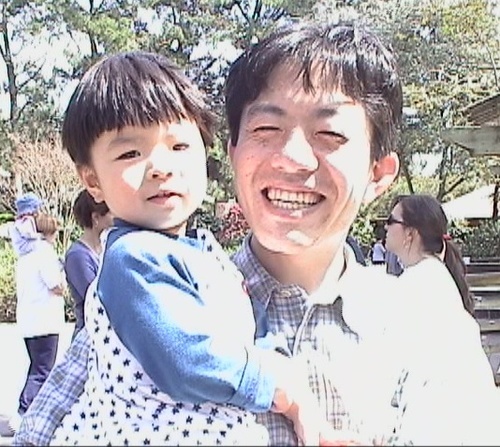結果
| 問題 | No.3344 Common Tangent Line |
| コンテスト | |
| ユーザー |
 tnakao0123 tnakao0123
|
| 提出日時 | 2025-11-15 17:11:07 |
| 言語 | C++17 (gcc 15.2.0 + boost 1.89.0) |
| 結果 |
AC
|
| 実行時間 | 206 ms / 3,000 ms |
| コード長 | 3,057 bytes |
| 記録 | |
| コンパイル時間 | 548 ms |
| コンパイル使用メモリ | 62,696 KB |
| 実行使用メモリ | 7,720 KB |
| 最終ジャッジ日時 | 2025-11-15 17:11:28 |
| 合計ジャッジ時間 | 19,913 ms |
|
ジャッジサーバーID (参考情報) |
judge3 / judge5 |
(要ログイン)
| ファイルパターン | 結果 |
|---|---|
| sample | AC * 1 |
| other | AC * 40 |
コンパイルメッセージ
main.cpp: In function ‘int main()’:
main.cpp:82:8: warning: ignoring return value of ‘int scanf(const char*, ...)’ declared with attribute ‘warn_unused_result’ [-Wunused-result]
82 | scanf("%d", &tn);
| ~~~~~^~~~~~~~~~~
main.cpp:86:10: warning: ignoring return value of ‘int scanf(const char*, ...)’ declared with attribute ‘warn_unused_result’ [-Wunused-result]
86 | scanf("%d%d%d%d%d%d", &c0x, &c0y, &r0, &c1x, &c1y, &r1);
| ~~~~~^~~~~~~~~~~~~~~~~~~~~~~~~~~~~~~~~~~~~~~~~~~~~~~~~~
ソースコード
/* -*- coding: utf-8 -*-
*
* 3344.cc: No.3344 Common Tangent Line - yukicoder
*/
#include<cstdio>
#include<cmath>
#include<algorithm>
using namespace std;
/* constant */
/* typedef */
template <typename T>
struct Pt {
T x, y;
Pt() {}
Pt(T _x, T _y) : x(_x), y(_y) {}
Pt(const Pt<T> &p) : x(p.x), y(p.y) {}
Pt<T> operator+(const Pt<T> p) const { return Pt<T>(x + p.x, y + p.y); }
Pt<T> operator-() const { return Pt<T>(-x, -y); }
Pt<T> operator-(const Pt<T> p) const { return Pt<T>(x - p.x, y - p.y); }
Pt<T> operator*(T t) const { return Pt<T>(x * t, y * t); }
Pt<T> operator/(T t) const { return Pt<T>(x / t, y / t); }
T dot(Pt<T> v) const { return x * v.x + y * v.y; }
T cross(Pt<T> v) const { return x * v.y - y * v.x; }
Pt<T> mid(const Pt<T> p) { return Pt<T>((x + p.x) / 2, (y + p.y) / 2); }
T d2() { return x * x + y * y; }
double d() { return sqrt(d2()); }
Pt<T> rot(double th) {
double c = cos(th), s = sin(th);
return Pt<T>(c * x - s * y, s * x + c * y);
}
Pt<T> rot90() { return Pt<T>(-y, x); }
bool operator==(const Pt<T> pt) const { return x == pt.x && y == pt.y; }
bool operator<(const Pt<T> &pt) const {
return x < pt.x || (x == pt.x && y < pt.y);
}
void print() { printf("(%d,%d)", x, y); }
};
using pt = Pt<double>;
struct Line {
double a, b, c;
Line() {}
Line(double _a, double _b, double _c): a(_a), b(_b), c(_c) {}
double val() {
double m = max(max(abs(a), abs(b)), abs(c));
double x = abs(a + b + c) / m;
return x;
}
};
/* global variables */
/* subroutines */
Line calcline(pt p, pt v) {
// (x,y) = p+v*t -> x=px+vx*t, y=py+vy*t
// -> t=(x-px)/vx=(y-py)/vy
// -> vy(x-px)=vx(y-py)
// -> vy*x-vy*px=vx*y-vx*py
// -> vy*x-vx*y+(vx*py-vy*px)=0
auto ln = Line(v.y, -v.x, v.x * p.y - v.y * p.x);
//printf(" %lf*x + %lf*y + %lf = 0\n", ln.a, ln.b, ln.c);
return ln;
}
/* main */
int main() {
int tn;
scanf("%d", &tn);
while (tn--) {
int c0x, c0y, r0, c1x, c1y, r1;
scanf("%d%d%d%d%d%d", &c0x, &c0y, &r0, &c1x, &c1y, &r1);
pt c0(c0x, c0y), c1(c1x, c1y);
pt v10 = c0 - c1;
double l10 = v10.d();
pt nv10 = v10 / l10;
pt pa, va, pb, vb;
if (r0 < r1) {
// r0:r1=l:l+l10 -> r0(l+l10)=r1*l ->(r1-r0)*l=r0*l10
// -> l=(r0*l10)/(r1-r0)
double l = l10 * r0 / (r1 - r0);
pt c2 = nv10 * l + c0;
double th = asin(r0 / l);
pt nva = (-nv10).rot(th), nvb = (-nv10).rot(-th);
pa = c2, va = nva;
pb = c2, vb = nvb;
}
else {
pt rva = nv10.rot90(), rvb = -rva;
pa = rva * r0 + c0, va = nv10;
pb = rvb * r0 + c0, vb = nv10;
}
auto f0 = calcline(pa, va);
auto f1 = calcline(pb, vb);
double l12 = l10 * r1 / (r0 + r1), l02 = l10 - l12;
pt c2 = nv10 * l12 + c1;
double th = asin(r0 / l02);
pt nva = nv10.rot(th), nvb = nv10.rot(-th);
auto f2 = calcline(c2, nva);
auto f3 = calcline(c2, nvb);
double v = f0.val() + f1.val() + f2.val() + f3.val();
printf("%.14lf\n", v);
}
return 0;
}
